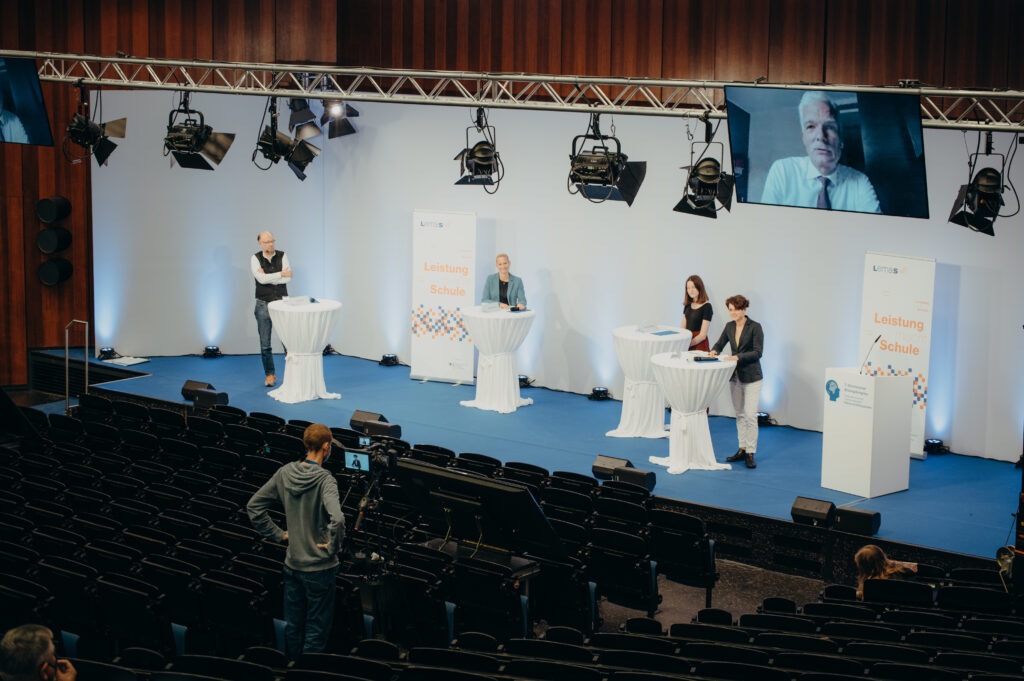How can conferences inspire sustainable education?
By PhD student Vivian M. van Gerven, Munster University, Germany
As part of our project we ran interviews with experts in the field of transdisciplinary talent development in autumn 2020. Those frontrunners reported that they often work solely or in small teams, trying to change higher education and fighting against windmills such as a lack of money, time, responsibility, and awareness for the need of change. It seems as if the driving force of changing educational principles depends on pioneers. Transdisciplinarity, also more frequently discussed, still seems to be the colourful parrot only seldomly found within the crowd of pigeons.

But not only projects like the STEAM+ and its Innovation Labs can contribute to make the diversity visible and help people show their colours, talents and visions on the topic of sustainability and change.
In September 2021 the 7th educational conference took place in Münster, Germany. This time it focused on identifying potential, developing talents and sustainable education.
Normally, the conference commits itself strongly to topics around giftedness and invites teachers and researchers to discuss on ways to support and foster talents. This time, we opened the conference to the topics of sustainability (and the SDGs) as well as related aspect of social responsibility. Central concerns were (and still are) the global challenges of the 21st century (e.g. global climate and world health) and the question, how individualized talent support can prepare pupils of a new generation to meet these challenges in a dedicated, creative and constructive way.
Based on these central questions, the conference, on the one hand, aimed to ascertain, how the achievement – related potential of children and adolescents can optimally develop on a long-term basis and, on the other hand, how their talents can be integrated with regard to the role of civil society in shaping a sustainable future, in terms of ecology, society, economy, culture, politics, globalization and digitalization. In this context, also the function of states, or, more specifically, of educational policies (e.g. future teacher training, curriculum design and teaching methods for sustainable education) were discussed and shall further be discussed. In addition, a special focus laid on 21st century competencies and how-to meaningful address the topics above in class. How should education in all fields change to equip new (and old) generations to face and cope with challenges? The conference contributions showed that those questions are not only relevant for educational researchers and teachers in Germany but also around the globe.
Just to give you some examples of presentations and discussions of the conference:
- Klimagerechtigkeit und die Transformation zur Nachhaltigkeit (Climate justice and the transformation to sustainability) Prof. Dr. Felix Ekardt
- Using the Schoolwide Enrichment Model (SEM) to Create Future Leaders and Change Agents: How Enrichment Inspires Service, Social Responsibility, and Using Talents to Improve the Planet Prof. Dr. Sally Reis
- Turning education upside down. Preparing learners for the 21st Century Dr. Anne Snick
- STEAM + Innovating STE(A)M in Higher Education with Transdisciplinary Talent Programs
Vivian M. van Gerven, Dr. Sara Hinterplattner
Overall, conferences such as the 7th MBK can be used to connect broadly and worldwide. Opening up conference topics to invite different disciplines and offer ways to work, think, and create together during such a conference can be rewarding and broaden ways for future collaboration across fields, universities as well as experiences and creative solutions for wicked problems.
